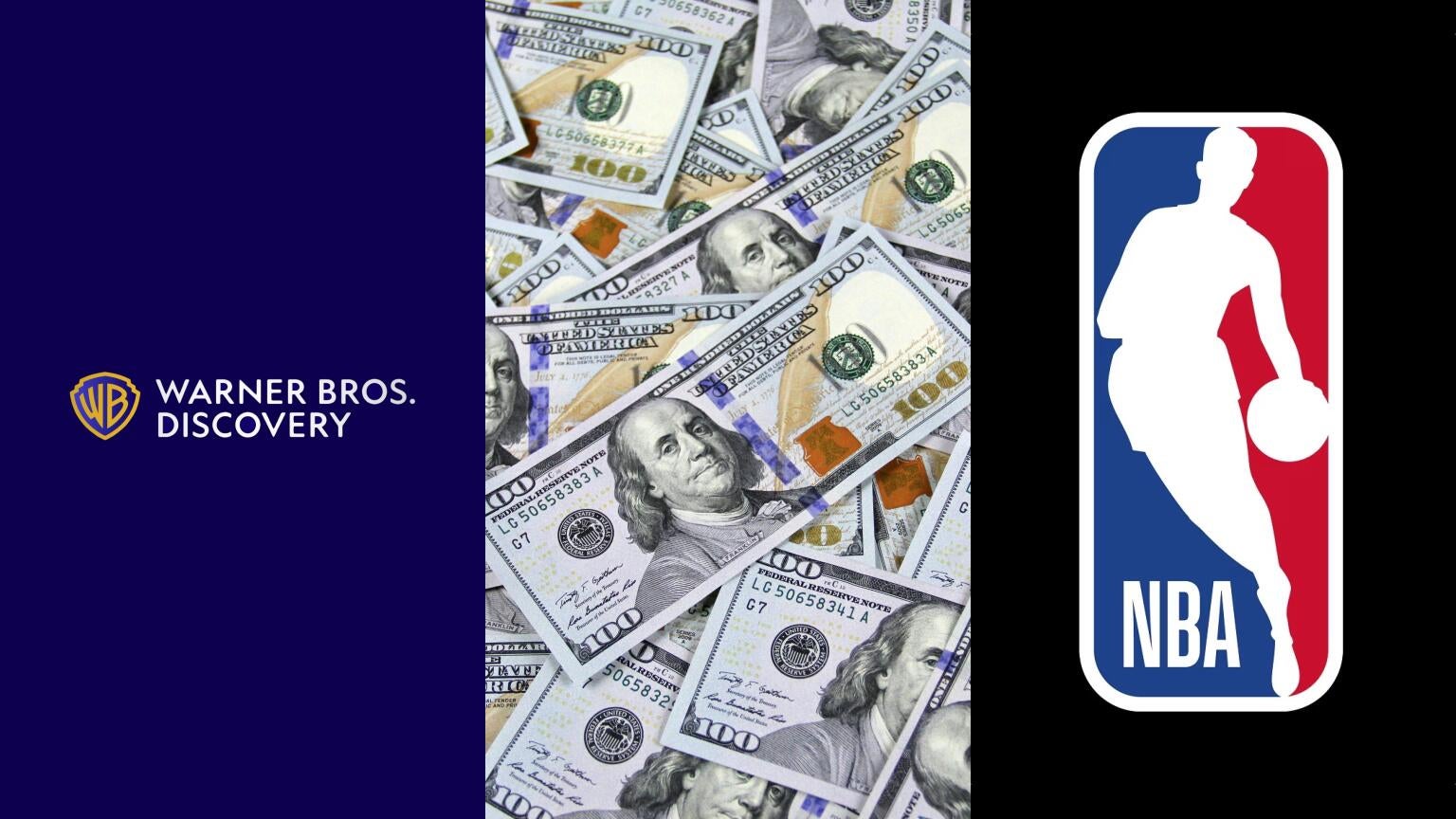If Warner Bros. Discovery Loses the NBA, What Will it Do With Its Newfound Billions?
If Warner Bros. Discovery Loses the NBA, What Will it Do With Its Newfound Billions?
The company could resort to a lawsuit to try and keep NBA rights, but if it loses them it will have an extra $1.2 billion per year to spend.

The ball is about to head to Warner Bros. Discovery’s court. The company could face a big decision in the coming days, as reports circulated Wednesday that the NBA is about to leave WBD’s cable channel TNT in favor of a new broadcasting deal with Comcast and NBC starting in 2025. WBD has a complex set of matching rights in its current contract, and could even try to sue to retain its NBA package, but if it does end up losing the Association, it will have to consider what to do with the $1.2 billion per season it has been paying the league since 2014, and the even more billions that it was planning in spending moving forward. Will it go after other sports rights — which it seems to have started to do by securing College Football Playoff games on Wednesday — or use the money to pay down its debt? There are lots of options on the table, and whichever direction CEO David Zaslav chooses to go could help determine the future of the company.
Key Details:
- There won’t be many more live sports options for WBD to pursue now that it has locked up a small selection of college football games.
- An acquisition of STARZ or AMC could be a good way for WBD to spend its NBA savings.
- The company could try to reignite merger talks with Comcast and backdoor its way into NBA broadcasting once again.
In the sports arena, WBD’s options for picking up new programming to replace the NBA appear slim at best. The top sports prize in the United States is the NFL, but even if the league exercises its contractual right to exit its current broadcasting contracts in 2030, WBD would still have to wait six years to try and get some NFL rights. That’s a long wait for a return that’s far from guaranteed.
TNT has already made some moves that could signal it knows it’s about to lose the NBA. This week, news broke that WBD had secured the rights to broadcast two first-round College Football Playoff games starting in 2024, plus two quarterfinal games starting in 2026. ESPN is one of WBD’s partners in the Venu Sports joint venture streaming service and the Disney-owned sports brand has locked up exclusive rights to all CFP games in a deal finalized earlier this year. As part of the agreement, ESPN has the rights to sub-license a portion of the games to other broadcast outlets, which it will do with TNT.
Warner could pursue a bigger selection of baseball rights from MLB with its NBA savings, but is baseball’s audience the demographic that the company wants to pursue most? WBD is continuing to see revenues from its linear channels decline, but its streaming segment has shown a profit — albeit a modest one — for two straight quarters. The company would gain the most benefit from adding sports that draw younger and more streaming-enthusiastic audiences to its platforms, but statistics show that MLB audiences are far likelier to be older, and to watch baseball games on linear TV as opposed to streaming.
What Non-Sports Options Are Available for WBD?

The most responsible thing WBD could do with the extra billions it won’t be spending on the NBA every year would be to reinvest that money in its own business. Zaslav’s company is still carrying a debt load of over $40 billion, and trying to pay that down could make it a more attractive target for entities seeking merger and acquisition opportunities. WBD and Comcast have been discussed as potential merger partners more than once, and now that Comcast is moving through the process of selling its multi-billion dollar stake in Hulu, it has a chunk of change to spend.
If Comcast acquired WBD, consternation over its loss of NBA rights would evaporate, as it would be controlled by the same company set to acquire its former package of games. It would also allow for a combination of Peacock and Max onto the same streaming platform, creating a powerful new streaming product with Universal and Warner Bros. movies, prestige TV from HBO, Peacock’s deep library of lean-back shows, and a wide range of sports.
On the other hand, losing the NBA could put WBD in a buying mood. There are certainly entertainment assets to be had if this is the case, starting with Lionsgate. That company recently received approval for its plan to split its TV and movie production studios off from the STARZ cable network and streaming service and the studios are being merged with a Special Purpose Acquisition Company in order to make it easier for an outside firm to acquire. Buying Lionsgate would bring a host of new franchises to WBD, including “The Hunger Games” and “John Wick.”
AMC and its collection of streaming services could also be a logical target for WBD. Both sides benefitted from a recent licensing deal which saw AMC shows like “Interview with the Vampire” stream on Max, and AMC Networks has a market cap of less than $1 billion. It may not be all that difficult to acquire the company, and it could prove to be a low-risk, high-reward move for a corporation like WBD that needs precisely that.
WBD’s fight to retain the NBA isn’t over yet; there will lawyers will almost certainly get involved before all is said and done. But if the company does see the NBA bounce off to NBC, it will have plenty of options for spending or saving the billions of dollars it was set to spend every season to keep the Association on TNT.
Max
Max is a subscription video streaming service that gives access to the full HBO library, along with exclusive Max Originals. There are hubs for content from TLC, HGTV, Food Network, Discovery, TCM, Cartoon Network, Travel Channel, ID, and more. Watch hit series like “The Last of Us,” “House of the Dragon,” “Succession,” “Curb Your Enthusiasm,” and more. Thanks to the B/R Sports add-on, users can watch NBA, MLB, NHL, March Madness, and NASCAR events.

